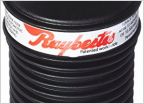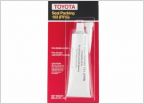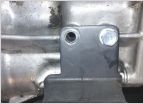-
Welcome to Tacoma World!
You are currently viewing as a guest! To get full-access, you need to register for a FREE account.
As a registered member, you’ll be able to:- Participate in all Tacoma discussion topics
- Communicate privately with other Tacoma owners from around the world
- Post your own photos in our Members Gallery
- Access all special features of the site
Regular gas lasting longer than Plus?
Discussion in '1st Gen. Tacomas (1995-2004)' started by nyg052003, Sep 28, 2016.
Page 2 of 2
Page 2 of 2


 Power steering reservior clean-out
Power steering reservior clean-out Exhaust kit recommendation for DT Headers?
Exhaust kit recommendation for DT Headers? Oil Pan Gasket??
Oil Pan Gasket?? Stripped transmission mount hole. Need advice/ideas on how to fix
Stripped transmission mount hole. Need advice/ideas on how to fix 5 lug 2WD wheel/tires help
5 lug 2WD wheel/tires help FIPG Question (Seal Packing 103 #00295-00103)
FIPG Question (Seal Packing 103 #00295-00103)









































































